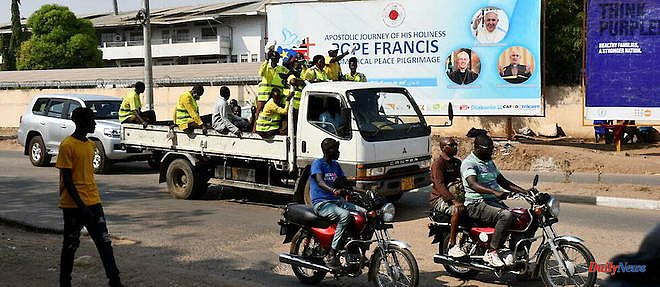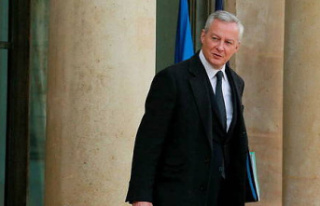“We are very happy because he is a spiritual father with worldwide influence. We hope that our brothers in government will accept his words and that we can go home. These vows are not those of a priest, but of a leader of a Muslim cult. Kneeling in the larger of the two mosques in the Protection of Civilians (PoC) camp in the South Sudanese town of Malakal, on the border with Sudan, Sheikh Abdallah Akech Khamis bears witness to a national expectation, which goes beyond the community alone Catholic – South Sudan's first denomination. All pray that Pope Francis' historic trip to Juba from February 3 to 5 will finally persuade political leaders to implement the peace agreement signed in 2018, following five years of civil war that has claimed nearly 400,000 dead.
More than 2 million citizens remain refugees, while another 2 million are internally displaced in this small country in the Horn of Africa, which became independent from Khartoum in 2011. This cycle of violence seems endless. New conflicts, still ongoing, erupted again in Upper Nile state in August, throwing thousands of civilians onto the roads. At least 13,000 of them have joined the PoC of Malakal, the capital of this region, adding to the 34,000 men, women and children who have been victims of previous clashes or the devastating floods of the past three years*.
Each of them remembers scenes of incredible violence. Dressed in a traditional loincloth, 19-year-old Monica James waits in line to get her monthly ration of sorghum, lentils and oil distributed by the World Food Programme. In November, his village was stormed by militiamen. “They slaughtered the men and captured the women, sparing neither the young nor the old. They wanted to seize our fertile lands, after theirs had been flooded, says the one who was herself detained for twenty-four hours. I witnessed the assassination of three men. Two were shot and the third beaten to death with a machete. »
Her captors, who she says are acting on the orders of First Vice President Riek Machar's wife, beat her. Monica James retains a large scar on her back. But she considers herself lucky to have been able to escape while her older sister, her aunt and her friend remained in the clutches of the assailants. In shock, this young Catholic does not hide her skepticism one week before the landing of the papal plane. "We certainly see a small hope, while keeping in our hearts the fear that some politicians will refuse to listen to the pope and that our suffering will continue," she said, before returning to sell tea to complete the donations. incomplete from the UN. This aspiring doctor yearns to return to the school benches.
"We are displaced, but we are treated as refugees in our own country!" shouts Presbyterian pastor Opwony Aywok from one of the camp's 22 Christian buildings. We hope that the coming of the pope will change something. But, in the absence of the will of our leaders, nothing will happen. This Protestant recalls how, three years ago, the pope kissed the feet of the two enemy brothers, President Salva Kiir and his now vice-president Riek Machar, to implore them to reconcile. "But when they came back from Rome, they didn't do anything," said Opwony Aywok.
From the PoC Catholic Church, Father Michael Bossano, an American missionary present since the beginning of the war, refuses to be discouraged. “This is an opportunity to restart the peace process. We cannot go on like this if we want to build a nation of peace and unity that is vibrant, full of hope and possibility for future generations. This visit will at least bring some positive energy to the population by showing them, above all, that they have not been forgotten. South Sudan is indeed rarely mentioned in the international media,” said the Prelate, who is part of the Malakal delegation that will meet the Pope.
Some Christians will steer clear of this "ecumenical journey of peace", which also includes the head of the Anglican Church and moderator of the Presbyterian Church of Scotland. This is the case with the faithful of the Seventh-day Adventist Church, a non-member denomination of the Council of Churches of South Sudan. However, the representative of this body, Clement Joseph, expects a lot from these three days. "The Pope's visit will put South Sudan in the spotlight even though the other crises, in particular the war in Ukraine, have somewhat obscured us. Our leaders will then have to be wise enough to seize this chance to mobilize the international community to help us,” the pastor said.
Human rights defenders also see an appointment not to be missed in this trip to Juba, preceded by a three-day stopover in the Democratic Republic of Congo. Tigere Chagutah, Amnesty International's regional director for East and Southern Africa, urged the pope to "take concrete steps to end impunity for crimes under international law." Compliance with this recommendation could change the fate of the world's youngest nation, traumatized by the abuses that continue today.












